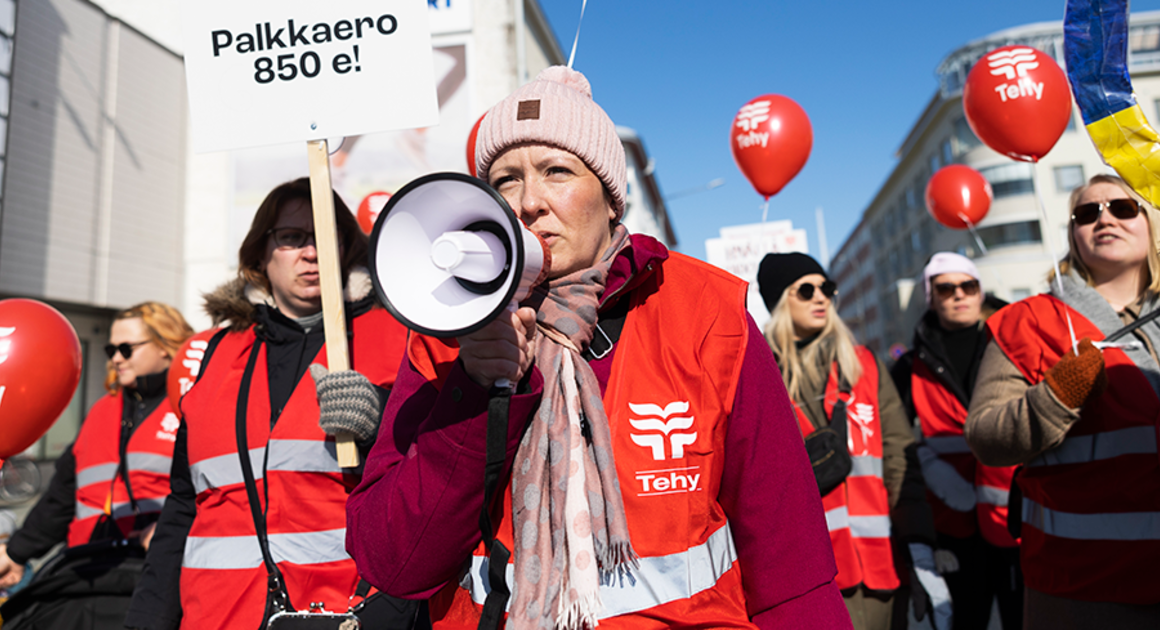Covid-19 25,000 health care workers end 14-day strike in Finland

The strike led by PSI affiliates the Union of Health and Social Care Professionals in Finland (Tehy) and the Finnish Union of Practical Nurses (SuPer) affected six hospital districts. A second phase of the strike is expected to begin on 20 April, involving other 35,000 health workers and 13 hospital districts.
- Read this in:
- en

Comms
SuPer and Tehy have proposed a rescue program to tackle the shortage of social and health care professionals and to improve the working conditions. Unions have proposed an extra 3.6 per cent increase annually over the next 5 years on top of the standard pay increase.
Another strike warning for 35,000 more health professionals was issued by unions. This strike will cover 13 hospital districts and will start on 20 April unless there is an agreement before then.

PSI stands in Solidarity
I write to assure you of the full support of the Public Services International for the ongoing strike of 25,000 members of Tehy and SuPer, in Finland. The demands of your unions for improvements in staffing levels, working conditions and salaries are just. And you have utilized every possible means of negotiations before commencing the 2-week strike on 1 April, to no avail.
Health care professionals have been celebrated in Finland and across the world for their roles on the frontline of the global COVID-19 pandemic response. You have been applauded, while governments fail to appreciate how years of inadequate public funding left the health system understaffed and health workers overworked and underpaid. To make matters worse, governments have failed to make amends by taking much needed action to address this worrisome, and avoidable situation.
In 2016, I had the honor of representing the organized health and care workers on the United Nations High-Level Commission on Health and Economic Growth. The High-Level Commission noted that there would be a shortage of 18 million health and care workers by 2030 if governments did not immediately take steps to ramp up employment and the decent work agenda in the health and social care sector.
In Finland, specifically, there is an acute shortage of health professionals. As Teppo Kröger, Professor of Social Policy at the University of Jyväskylä and Director of the Centre of Excellence in Aging and Care, observed two years ago, the country will need an additional thirty thousand nurses for elderly care alone, by 2030.
Thus, this is the time for Finland to invest in massive employment, adequate remuneration and improvement of the working conditions of health professionals. This is what Tehy and SuPer are fighting for. And if you stand firm and undeterred, this is what you will win.
I wish you victory, which will equally be a victory for the entire Finnish people who will thus benefit from enhanced public delivery of health and care services in the country.
In solidarity,
Rosa Pavanelli
General Secretary